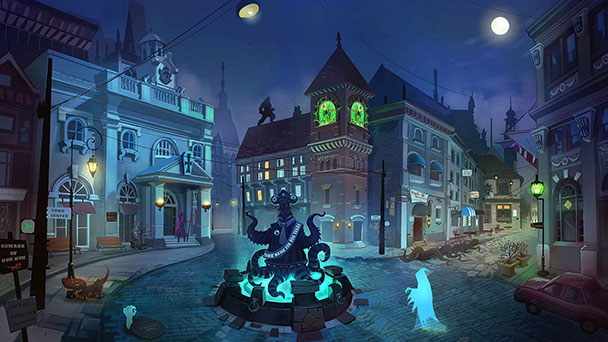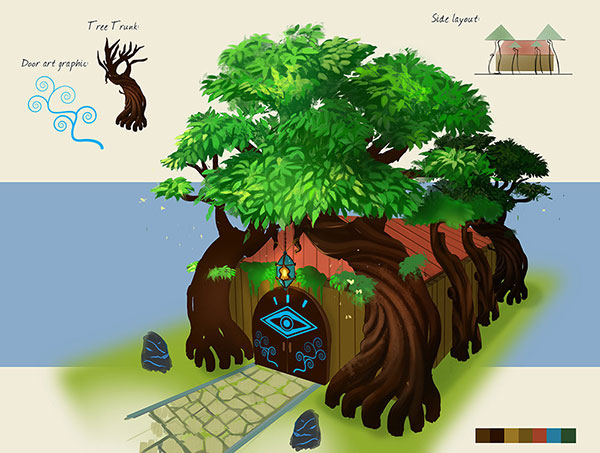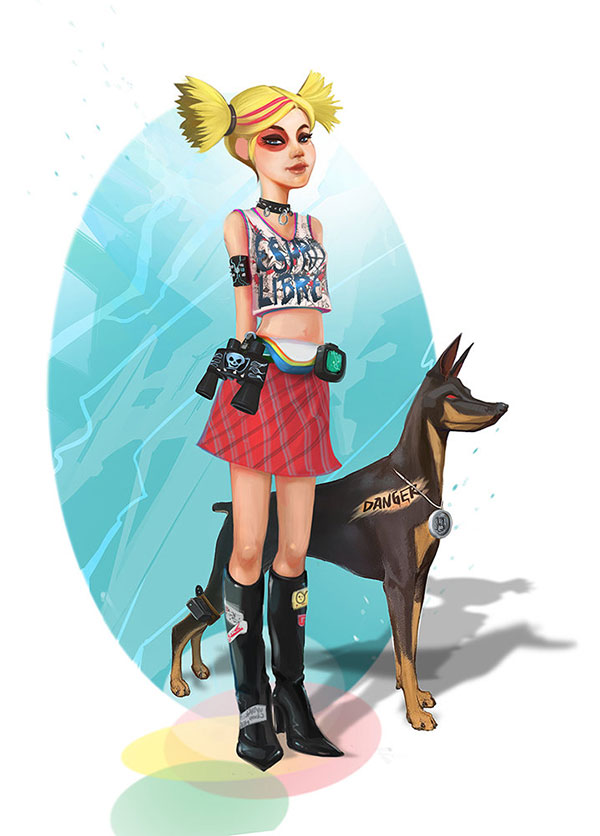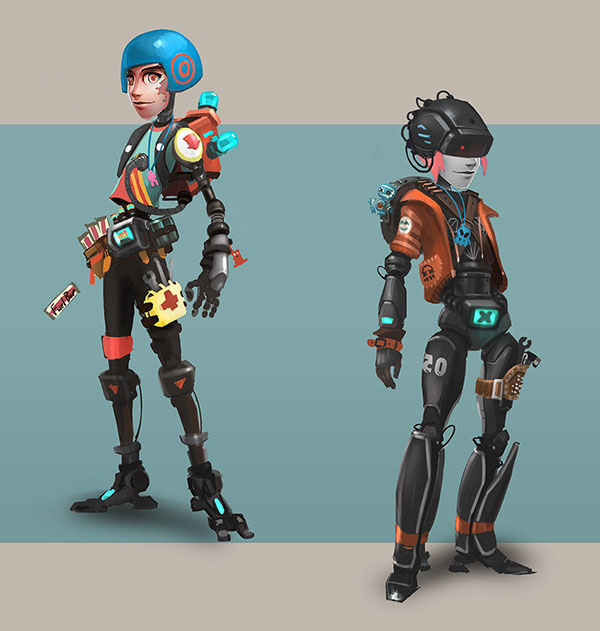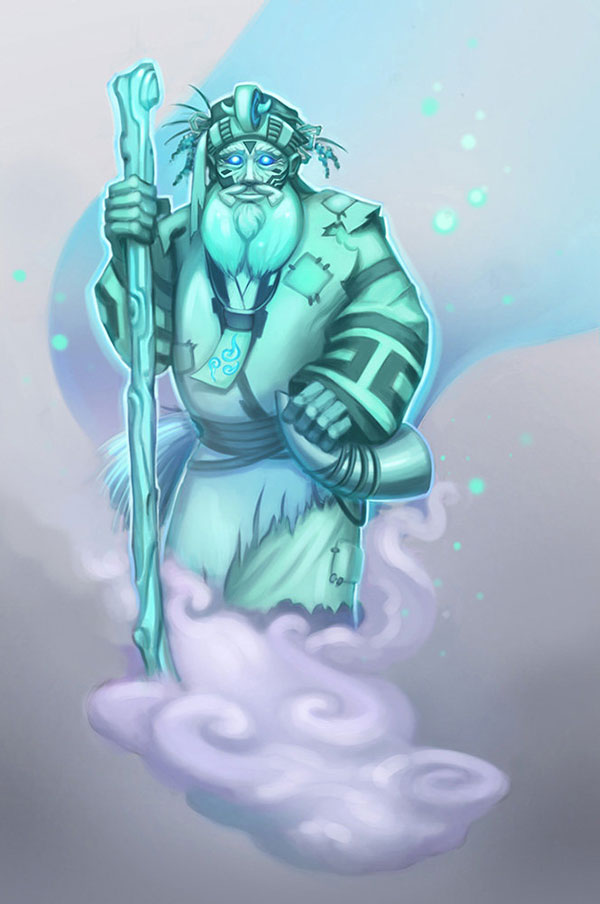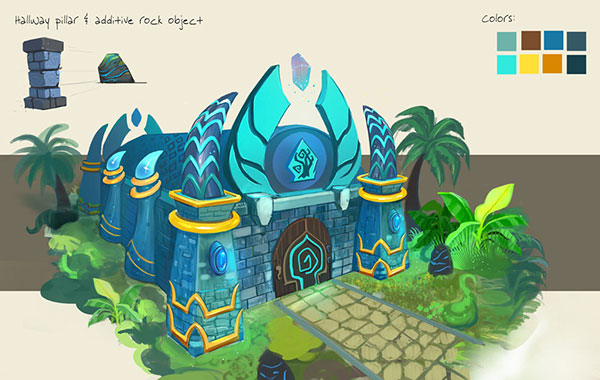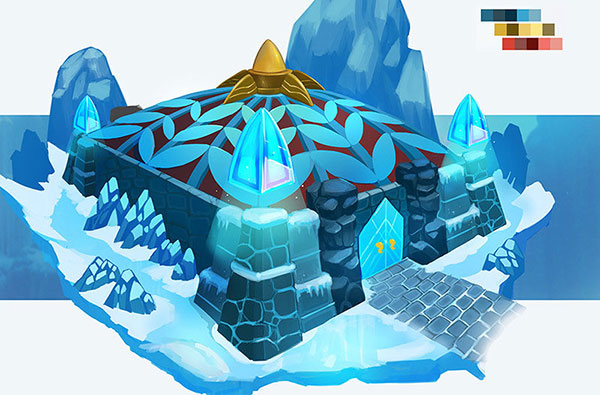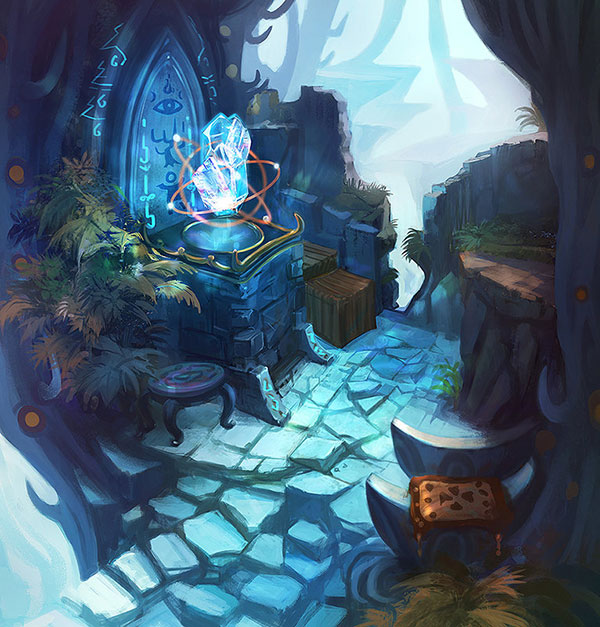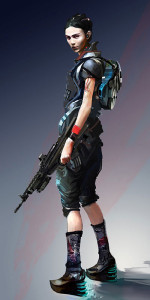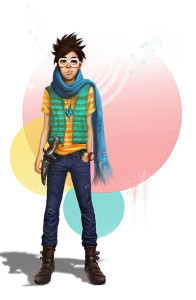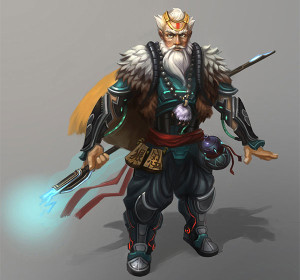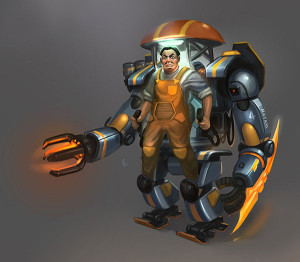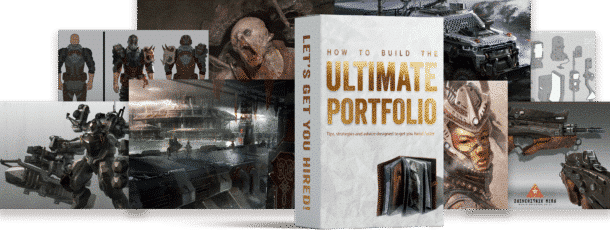Kate Yu is a concept artist and illustrator working in the video game and entertainment industry.
Professional Portfolio and Blog
Educational background:
Attended The Guildhall at SMU, Majored in Art Creation, graduated 2007. Holds a degree in Video Game Development in Art Creation
Number of years in industry: 9
Projects worked on:Brothers in Arms, Borderlands, Fear 3, Wizard 101, Wizard of Oz slots
Kate Yu’s current portfolio examples:
In this interview, we asked Kate Yu specific questions about what it’s like to be a concept artist in the entertainment industry, discuss some of the one-the-job challenges, as well as her educational background. We also discuss with Kate her Dos and DONTs of portfolio building, how she branded and marketed herself in the beginning, and much more.Here’s what she had to say:
HOW OLD WERE YOU WHEN YOU DECIDED TO COMMIT TO BEING AN ARTIST? WHAT WERE YOUR MOTIVATIONS/ INSPIRATIONS?
I think I was 20 years old when I decided to be an artist for the video games industry. Graphic fidelity was constantly improving each year and my favorite games at that time, (like Never Winter Nights, Diablo, Syberia) really started to look amazing. My love of these games, became the motivation behind researching more about their development process, and boom!, I was sold on becoming a concept artist.
WHAT DO YOU LIKE MOST ABOUT YOUR JOB? WHAT DO YOU FEEL ARE THE BIGGEST CHALLENGES?
I think my biggest realization is that the game industry is an industry of business.
As a “green” artist fresh out of school, I was excited for the small dev team feel, the passion in the projects, and the ownership of my creation, but, once I got into the industry I realized that in reality, this is not always the case. At the end of the day,each studio will have it’s own culture that you will have to deal with because each project needs to secure financial backing. I’ve learned a lot about the business and what it means for the creatives, but, if I had to choose again, I still wouldn’t want to be in any other industry.
CAN YOU SHARE A PERSONAL STORY, ABOUT A HARD LESSON THAT YOU LEARNED, THAT COULD HAVE BEEN AVOIDED, HAD YOU BEEN BETTER INFORMED?
I was working passionately hard for this company and it’s game- frequently keeping late hours doing anything and everything that was needed. After doing this for three years I became really worn out, and despite my efforts,the project looked like it was going no where. So I decided to leave the studio. This decision upset the company heads and when the game did finally ship, years later, they denied me full credits for my efforts on the project.
Be really sharp about the company culture you are working for, and always think objectively before you make any sudden moves. This is still a business and being an artist in my opinion needs to learn how to tactfully watch out for his/her interests.
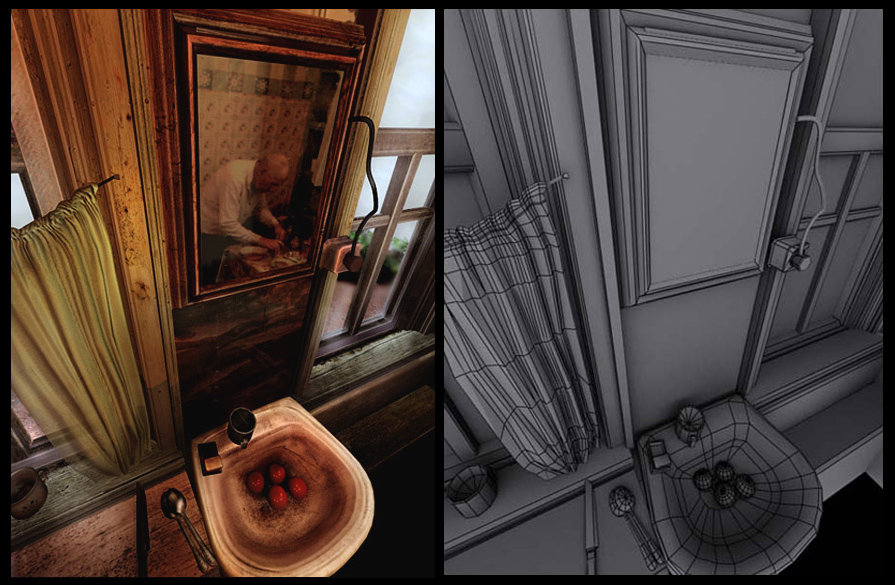
An example of Kate’s Student work
IN THIS DAY AND AGE OF INEXPENSIVE AND EASILY ACCESSIBLE ONLINE TRAINING MATERIALS HOW VALUABLE DO YOU BELIEVE, GETTING AN EDUCATION FROM A UNIVERSITY OR COLLEGE WILL BE FOR ASPIRING ARTISTS WHO WANT TO BREAK INTO THE ENTERTAINMENT INDUSTRY?
I will always support educational institutions, because they facilitate great spaces for student- teacher interactions as well as student- student interactions. These institutions can also provide facilities that you won’t otherwise have access to. That said, I also recognize that institutions are getting more expensive, and the specialty trade schools often come with jaw dropping price tags.
The good news is that in the game industry, most studios don’t require you, the artist, to have a diploma, so if you are able to find great materials online and you are a talented hard worker, then you will go far.
The bad news is that for a new artist, the internet resources can be daunting to sift through, you maybe getting some terrible advice and you won’t even know it. I suggest that if you choose to go to a school, then heavily research the credibility of the school, and most importantly, know what kind of a student you are- then go find the best place that fits your personality and your financial capability.
DID YOU HAVE ANY OUTSIDE HELP PUSHING YOU ALONG WITH YOUR TRAINING?
I’ve had a lot of help from fellow artists, and I’ve learned a lot by sharing techniques and seeing how other artists tackle their problems. I’ve worked with a few senior concept artists in the industry who provided me with their mentorship, and I think this is the most important thing to have as an artist.
Artists should choose good mentors no matter what schools they go to or studios they work for. In return, I believe artists should try to provide good mentorship to other artists and keep the good vibes going.
ARE THERE ANY CLASSES YOU TOOK IN SCHOOL WHICH SURPRISINGLY HELPED YOU IN THE LONG RUN MORE THAN YOU THOUGHT THEY WOULD?
I remember how much the sculpture class helped me see shapes 3 dimensionally and improved my feel for perspective.
HOW DID YOU STRUCTURE THE PORTFOLIO THAT LANDED YOU YOUR FIRST GIG?
I always try to have work in my portfolio that in some way caters to the studio I’m applying for. For my first gig, with GearBox software, working under people like Randy Pitchford, I had some mechanical designs, general environment concepts, and a lot of environment 3D models because they were making Brothers in Arms at the time.
HOW DID YOU HUNT DOWN YOUR FIRST JOBS IN THE INDUSTRY?
My school helped me land my first gig. We had student show cases and career days where we were able to speak to the recruiters from various companies. My advice for artists who do not have these events is to promote their work on online art galleries and to check out Indeed.com, which in my opinion, hosts the most current, up to date and complete available job listings for game developers.
HOW DO YOU CURRENTLY PROMOTE YOUR ARTWORK?
I’m not a very prolific self promoter- I only have a website that I update as needed. However, a lot of my artist colleagues promote themselves by entering into contests, or print out their work and show them at major industry conferences. I even have a group of friends who branched out into creative books such as art books, comics, or children’s book illustrations. Another channel is to get involved in freelance projects on the side. I think these are all really good self-promoting channels artists can consider.
This concludes our interview with Kate Yu. If you would like to read more from Kate, be sure to check out her Words Of Wisdom, later on this week. All images used with permission by the artist. ©Kate Yu.

